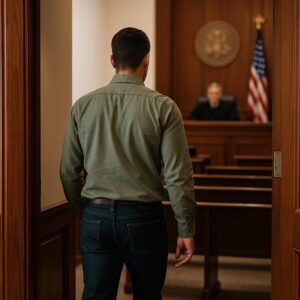Most people know, at least at a basic level, that the U.S. Constitution prevents the federal government from interfering with “freedom of speech.” Perhaps fewer state residents are aware of it, but the Texas Constitution does the same. The state constitution takes two sections to do what the federal Constitution does in a single amendment, but both protect the freedom of speech and of the press as well as the right to peaceably assemble. The right to freedom of speech is an integral part of protesting and the right to peaceably assemble. After all, what is a protest if not espousing a viewpoint on a particular issue?
“Freedom of speech” has a nice ring to it, but the right is not unrestricted. If you think “freedom of speech” means you can say anything you want, anywhere, at any time, or in any manner you like, you are mistaken.
There are Limits on Freedom of Speech
Freedom of speech is not absolute. The government can place restrictions on the exercise of freedom of speech so long as those restrictions are not based on the content of the speech itself. So long as they are content-neutral – meaning the restrictions apply to all speech under the defined circumstances – governments can impose what are known as “time, place, and manner” restrictions on the exercise of freedom of speech. Such measures can restrict when, where, or how loud you choose to protest, among other similar restrictions.
So long as the restrictions are content-neutral, governments can impose such measures. Texas has a number of restrictions on time, place, and manner of speech and protests. These include:
- Protests within 1,000 feet of a cemetery or other facility where a funeral is taking place, including three hours before the funeral service begins and for three hours after it ends.
- Certain types of protests near “critical infrastructure facilities,” including oil and gas pipelines or related facilities, that are under construction.
- Protests that block highways, sidewalks, or other avenues of transit or passageways. Blocking access for emergency vehicles is a felony under this section.
Other sections of Texas law make it illegal to participate in “disorderly conduct” during a protest, criminalize knowingly participating in a riot, or to disrupt or prevent a legal meeting, procession or gathering. Several of these “time, place, and manner” restrictions require police, in instances where someone is otherwise violating other laws against unreasonable noise or other restrictions on protests, to first ask the person to stop doing so before they can arrest that person.
If You are Arrested at a Protest, Talk to Madrid Law Firm
In general, your right to protest is protected under state and federal laws and constitutions. However, that does not mean you will not be arrested for making your voice heard regarding whatever your topic of choice might be. That does not mean that your freedom of speech has been violated, however. It is possible you have run afoul of “time, place, and manner” restrictions on protest. Even if the charge asserts that this is the case, circumstances could provide you with a defense. If you are arrested during a protest and charged with violating such restrictions, contact the Madrid Law Firm. They can help.





